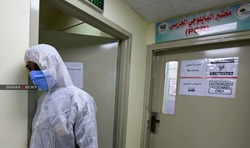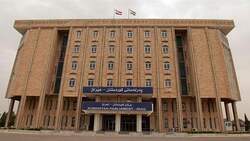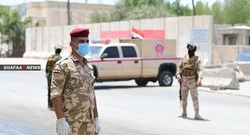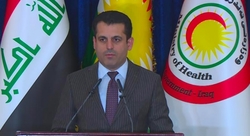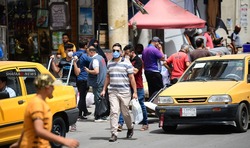IMF Almost all Middle Eastern economies have been affected by the COVID-19 pandemic

Shafaq news/ International Monetary Fund (IMF) published its October report drawing some early lessons from governments’ fiscal responses to the pandemic and providing a roadmap for the recovery.
Associated press stated, “The coronavirus pandemic has pushed nearly all Mideast nations into the throes of an economic recession this year, yet some rebound is expected as all but two — Lebanon and Oman — are expected to see some level of economic growth next year, according IMF report.
This comes as the IMF estimates that the global economy will shrink 4.4% this year, marking the worst annual plunge since the Great Depression of the 1930s.
Well before the coronavirus swept across the globe, several Mideast countries had been struggling with issues ranging from lower oil prices and sluggish economic growth to corruption and high unemployment.
While Mideast nations have seen fewer confirmed cases and deaths from the virus than countries in Europe and the U.S., the region still faces challenges in containing the disease.
“Risks of a worse-than-projected scenario loom large, particularly given recent surges in COVID-19 infections in many countries around the world that have reopened,” the IMF warned.
Iran, for example, recorded its highest daily death tolls from the virus last week. Its economy shrank by 6.5% last year and is projected to contract by another 5% this year. The IMF, however, expects Iran's economy to rebound with 3.2% growth next year, based in part on the government's future capacity to manage the virus, which it thus far as has struggled to do.
“Iran was among the first countries to become an epicenter of COVID-19 and we are now in the third wave of the pandemic, and this was on top of an economy that has been underperforming because of (U.S.) sanctions,” Jihad Azour, director of the Middle East and Central Asia Department at the IMF, told The Associated Press.
Meanwhile, wealthy Mideast oil exporters are expected to see their economies contract by 6.6% in 2020, the IMF said. Gulf Arab states, however, are expected to see average economic growth of 2.3% next year. The IMF says it projections are based on assumptions that the price of oil averages $41.69 a barrel in 2020 and will rise to $46.70 a barrel in 2021.
IMF revised its gloomy estimate of Saudi Arabia's economic contraction down from 6.8% to 5.4%. As one of the world's largest oil producers and top 20 largest economies, the kingdom took the bold step this year of trying to shore up more revenue by tripling value-added tax to 15% and increasing customs duties.
The IMF, known for its bullish stance on taxes and subsidy cuts, has largely suspended its calls for belt-tightening austerity measures as people struggle under the weight of lockdowns and job losses. The IMF said “in general, tax increases would be more effective after the crisis” as such measures “will likely be a drag on the recovery and invite larger fiscal costs in the future.”
The international lender is calling on countries to focus their immediate priorities on ensuring adequate resources for health care and correctly targeting support programs to the most-vulnerable people.
Meanwhile, other Mideast oil exporters like the United Arab Emirates, home to Dubai and Abu Dhabi, will see an economic contraction of more than 6% this year, while Oman's economy is projected to shrink by 10%.
Iraq faces a recession of 12%, so it has lost 50 percent of its financial revenues. The IMF said, noting that "in the short and medium term, excess-supply and stocks make concerns while the demand is decreasing due to the restrictions decrease in air travel.”
The report pointed out that “future oil curve indicate an expected rise in prices to reach 48 US dollars per barrel in the medium term compared to 41 dollars in 2020, but it remains 25% below its average level in 2019."
The World Bank estimates the pandemic has thrown between 88 million and 114 million people into extreme poverty, which is defined as living on less than $1.90 a day.
While Mideast states have rushed to provide various forms of support to their own citizens amid the pandemic, the impact from the virus has been acutely felt by many of the millions of low-wage laborers who hail mostly from South Asia and reside in the region. Their families back home rely on their salaries for survival.
Azour said to associated press, “Gulf Arab states alone provide 18% of global remittances. He said these countries should use the moment “to modernize labor laws” by providing support to all laborers in their countries.

